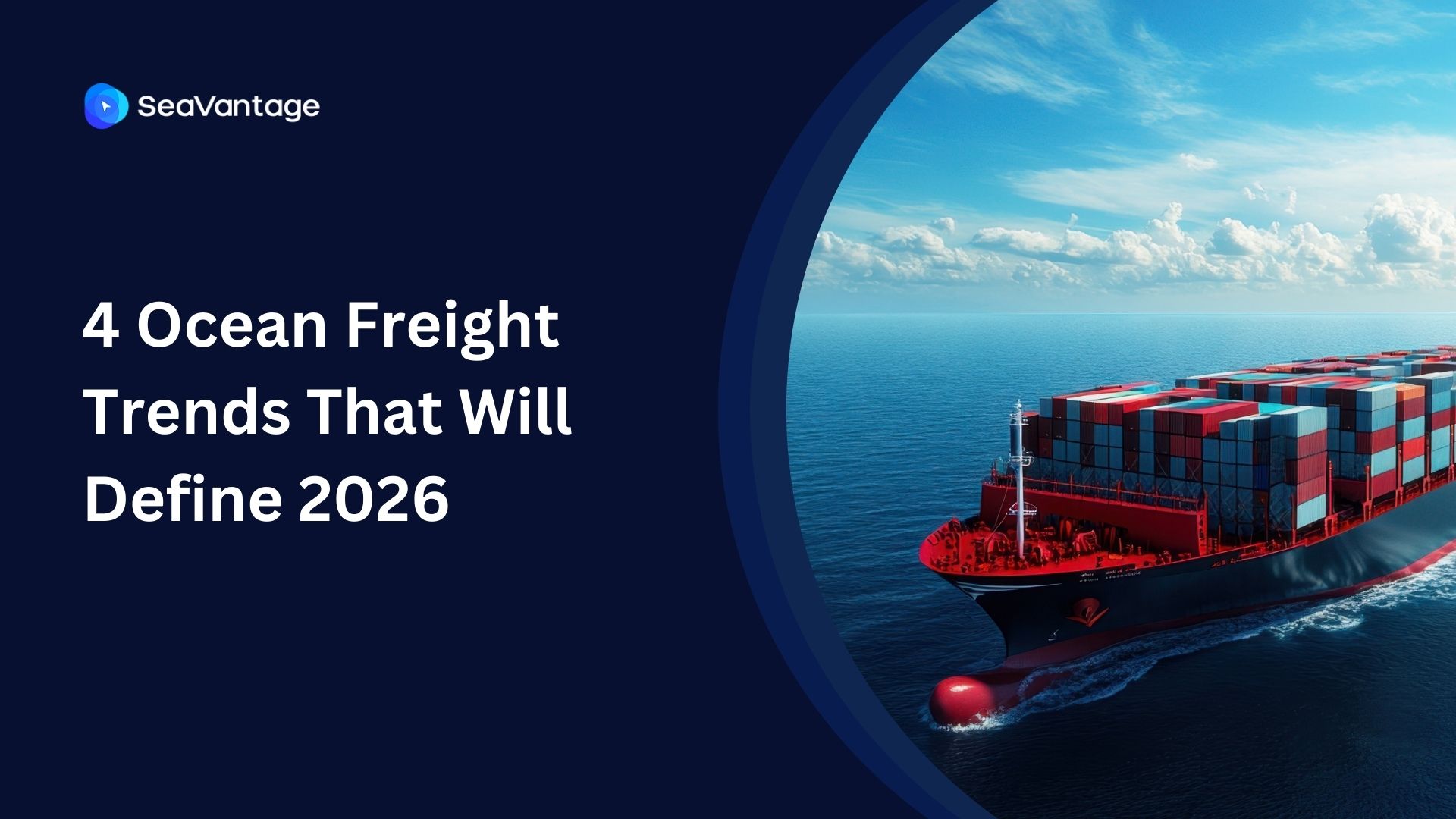Understanding Blank Sailing & Cargo Rollover: What It Means for Your Container Tracking

Understanding Blank Sailing & Cargo Rollover: What It Means for Your Container Tracking
In ocean shipping, unexpected disruptions can throw your supply chain off course. Two common culprits are blank sailings and cargo rollovers. These events can cause delays, increase costs, and create uncertainty in your logistics.
How do they affect your shipments? More importantly, what can you do to navigate these challenges effectively?
What Is Blank Sailing?
Blank sailing occurs when a carrier cancels a scheduled port call or an entire voyage. This means your cargo might not depart as planned. Why does this happen?
Common Reasons for Blank Sailing
- Schedule Adjustments – Carriers may skip ports to realign schedules disrupted by delays elsewhere.
- Demand Fluctuations – In periods of low demand, carriers might reduce sailings to manage capacity.
- Operational Challenges – Issues like port congestion, adverse weather, or labor strikes can lead to cancellations.
For example, in late 2023, blank sailings increased on major trade routes, especially from Asia to Europe, affecting up to 16% of total schedules.
Impact on Your Shipments
Blank sailings can cause:
- Delivery Delays – Your cargo remains at the origin port longer than expected.
- Increased Costs – Extended storage times can result in higher fees.
- Supply Chain Disruptions – Production schedules may be affected due to delayed materials.
If you rely on just-in-time (JIT) inventory, a blank sailing could lead to manufacturing slowdowns or even stock shortages.
What Is Cargo Rollover?
A cargo rollover happens when your container isn't loaded onto its scheduled vessel and is deferred to a later voyage.
Why Do Cargo Rollovers Happen?
- Overbooking – Carriers often accept more bookings than available space, anticipating last-minute cancellations.
- Documentation Errors – Incomplete or incorrect paperwork can prevent loading.
- Customs Issues – Delays in clearance can cause your cargo to miss its vessel.
- Port Congestion – Limited berth availability can force carriers to prioritize certain shipments.
For example, in May 2024, overbooked vessels caused widespread rollovers, leading to shipment delays across major trade lanes.
Consequences for Your Business
Cargo rollovers can lead to:
- Extended Transit Times – Delays can range from a few days to several weeks.
- Uncertainty – Difficulty in tracking your cargo's location and arrival time.
- Financial Implications – Additional costs for storage, demurrage, or detention fees.
A rolled container could also result in missed delivery deadlines, leading to contract penalties or loss of business.
How These Issues Affect Container Tracking
Blank sailings and cargo rollovers create major challenges for container tracking:
- Visibility Challenges – Sudden schedule changes make it hard to monitor your cargo’s status.
- Planning Difficulties – Unpredictable delays disrupt inventory management and production timelines.
- Customer Satisfaction Risks – Inability to provide accurate delivery estimates can harm client relationships.
Without real-time tracking, shippers often struggle to react quickly when delays occur.
Strategies to Mitigate Risks
While you can’t prevent blank sailings or cargo rollovers entirely, you can minimize their impact.
Best Practices for Shippers
- Book Early – Secure space by arranging shipments well in advance.
- Ensure Accurate Documentation – Double-check all paperwork to prevent loading issues.
- Stay Informed – Monitor carrier schedules and industry news for potential disruptions.
- Maintain Flexibility – Be prepared to adjust routes or carriers as needed.
- Use Reliable Carriers – Partner with carriers known for high schedule reliability.
As of June 2024, global schedule reliability was around 54.4%, with some carriers performing better than others. Choosing a reliable shipping line can significantly reduce risks.
Enhancing Container Tracking
Tracking technology plays a key role in managing these disruptions.
How to Improve Container Tracking
- Real-Time Updates – Use tracking platforms like SeaVantage that provide live location data.
- Automated Alerts – Set up notifications for delays, blank sailings, or route changes.
- Data Analytics – Analyze past shipment data to identify patterns and improve future planning.
Investing in container tracking solutions helps shippers maintain better control over their supply chains.
FAQ: Common Questions About Blank Sailing & Cargo Rollover
Q1: How can I find out if my shipment is affected by a blank sailing?
Check carrier announcements and use real-time tracking tools to stay updated on your shipment’s status.
Q2: What steps should I take if my cargo is rolled over?
Contact your carrier or freight forwarder immediately to understand the cause and reschedule your shipment.
Q3: Can I prevent cargo rollovers?
While not entirely preventable, booking early and ensuring accurate documentation can reduce the risk.
Q4: How do blank sailings differ from cargo rollovers?
Blank sailings involve carriers canceling scheduled sailings, while cargo rollovers occur when containers aren’t loaded onto their planned vessels.
Q5: How does improved container tracking benefit my supply chain?
Enhanced tracking provides better visibility, allowing you to manage delays proactively and maintain customer satisfaction.
Understanding blank sailings and cargo rollovers is key to keeping your supply chain moving smoothly.
By staying informed, maintaining flexibility, and leveraging tracking technology, you can reduce risks and improve shipping reliability.
2025년 9월, 주요 글로벌 항만에서 어떤 운송사가 가장 긴 선박 체류 시간을 기록했는지 확인해보세요. 트렌드를 비교하고, 지연을 파악하며, 전체 항만 데이터를 통해 운송 전략을 최적화할 수 있습니다.
2025년 8월, 주요 글로벌 항만에서 어떤 운송사가 가장 긴 선박 체류 시간을 기록했는지 확인해보세요. 트렌드를 비교하고, 지연을 파악하며, 전체 항만 데이터를 통해 운송 전략을 최적화할 수 있습니다.
2025년 7월, 주요 글로벌 항만에서 어떤 운송사가 가장 긴 선박 체류 시간을 기록했는지 확인해보세요. 트렌드를 비교하고, 지연을 파악하며, 전체 항만 데이터를 통해 운송 전략을 최적화할 수 있습니다.
Explore how tariffs, blank sailings, port congestion, and canal disruptions reshaped global ocean shipping in 2025 — and what supply chain leaders must do next.
Is your ocean supply chain ready for 2026? Discover 4 critical trends, from weather disruptions to strategic booking, and how to adapt.
iscover the 4 critical ocean freight trends for 2026, from the Red Sea reopening and fleet overcapacity to shifting global trade maps. Prepare your supply chain now.



.svg)







.png)